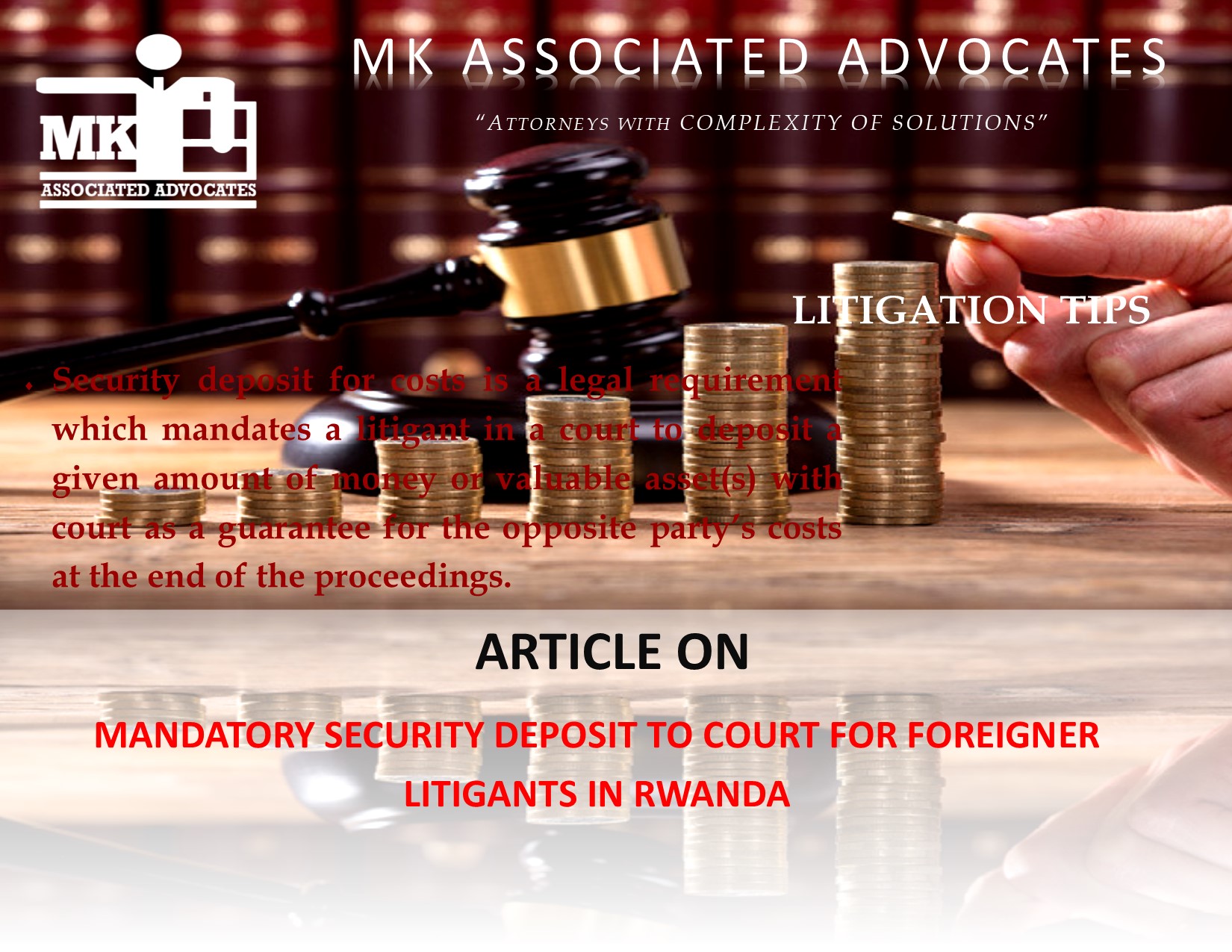
MANDATORY SECURITY DEPOSIT TO COURT FOR FOREIGNER LITIGANTS IN RWANDA
The concept of security deposit for costs is a legal requirement which mandates a litigant in a court to deposit a given amount of money or valuable asset(s) with court as a guarantee for the opposite party’s costs at the end of the proceedings. This is typically done to prevent a party or parties from pursuing frivolous or abusive litigation.
The origin of security for costs may be traced to petitions in the court of Chancery during the reign of Richard II in the year 1400 which occurred shortly after the development of the concept of costs. Security for costs is a legal mechanism that allows a court to order a party to provide financial security to cover the potential costs of the other party in case they lose the lawsuit.
In Rwanda, the concept can be traced under article 91 of Law relating to the civil, commercial, labour and administrative procedure No. 22/2018 that mandates furnishing of security by foreigners. A litigant party whether acting as original claimants or intervening in the case upon application by the claimant, before any other objections raised in the case, must deposit an amount of security which is enough to satisfy the costs and damages that might arise from the case. In Rwandan courts, security for costs is governed by Law relating to the civil, commercial, labour and administrative procedure, which suggests the following;
1. A court may order a party to provide security for costs if the party is a foreigner or a legal person not having a known residence or seat in Rwanda.
2. The court may also order security for costs if the party has previously failed to pay costs awarded against them.
3. The amount of security for costs is determined by the court, taking into account the potential costs of the litigation.
The operation of security for costs in Rwandan courts is as follows:
1. A party may apply to the court for an order of security for costs against the other party.
2. The court will consider the application and may order the other party to provide security for costs.
3. If the party fails to provide security for costs, the court may stay the proceedings until the security is provided.
4. If the party providing security for costs wins the case, the security may be used to cover their costs. If they lose the case, the security may be used to pay the costs of the other party.
This general rule has two main exceptions;
1. In case there are existing bilateral agreements entered into between foreign States and Rwanda which exempt their nationals from depositing such security.
2. Another exception applies in cases where the claimant files a claim with respect to their property (goods) they have been deprived of, and after providing sufficient evidence thereof and foreign nationals are in exception for this security deposit.
The concept of security for costs can apply or be adopted where one litigant is a foreigner, meaning in Rwanda this concept cannot be applied with both litigants are nationals.
We hereby advise in regard to this issue of security deposit that sufficient evidence need to be provided to court to proof either way as to whether there’s need to a litigant deposit security for cost not to deposit.
Disclaimer on this content should not be taken as legal advice, and MK Associated Advocates will not be held accountable for any legal actions the reader may take referring to this information, but rather can reach out for a formal legal advice(s) and legal opinions at our office on the above address and contacts(http://mkassociatedadvocates.rw/).